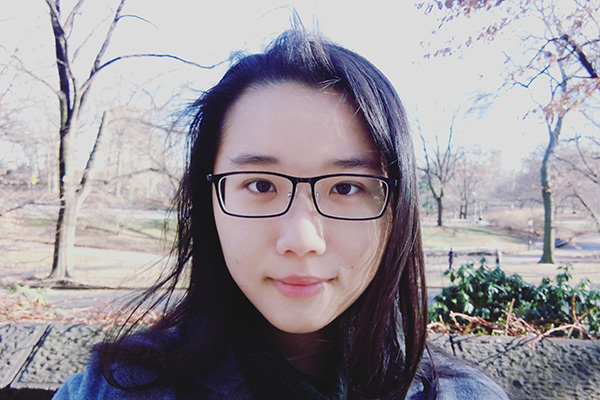Quickly making a name for herself, Chinese-Canadian composer Alison Yun-Fei Jiang’s compositions have been heard across North America and Europe. She’s also the winner of the 2016 Toronto Symphony Orchestra Call for Scores and is this season’s commissioned composer for NYO Canada. Her most recent accomplishment, however, is being selected as a finalist in the Graham Sommer Competition for Young Composers.
Alison’s educational background is unique. Though she’s currently a Ph.D. candidate in music composition at the University of Chicago and holds degrees from the Manhattan School of Music and New York University, Alison began her undergraduate studies in physics at the University of Toronto with the intention of doing a double major in music. Eventually, the switch to studying music full-time at the Manhattan School of Music just made sense to her. “The reason was simple,” Alison describes. “I enjoyed making music too much, and appreciated how, through making music, personal and meaningful expressions could be heard and shared.”
This appreciation of music began at the age of four, when she started piano lessons and studied music theory through the Royal Conservatory of Music. As time went on, her increasing interest in exploring the inner workings of music led her to compose her own music and to begin formal training in music composition at the age of 18.

Motivated by both musical and non-musical sources, Alison finds compositional inspiration in landscapes and sceneries as well as other art forms including literature, poetry, paintings, film and animation. An avid fan of the Japanese heavy metal band X Japan, she does not shy away from non-classical genres but rather finds inspiration from all kinds of music.
Another key element in her compositional style is her Chinese heritage. The first music she ever listened to was a southern Chinese traditional opera that her grandmother often played on the TV and radio. Alison describes the piece as being highly lyrical and held together with thin layers of orchestrations and moments of silent surprises. “Childhood immersion in this genre has greatly influenced my way of thinking about and creating music,” describes Alison. “Consciously and unconsciously, I prioritize horizontal, linear and melodic materials when improvising and writing music. My music always features some melodic content, often consisting of pentatonic pitch elements, and I really value moments of silence in creating music and like to reserve materials and energy. I find less or nothing can be sometimes way more effective, expressive, and dramatic.”
Following the Graham Sommer Competition, Alison will begin working on a new orchestral work to be presented during the 2018-19 season at the Chicago Center for Contemporary Composition at the University of Chicago. Follow her other activities on her website.


